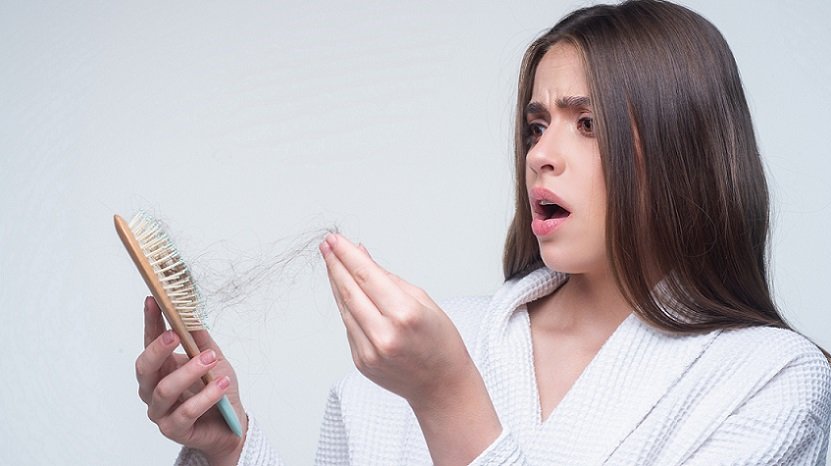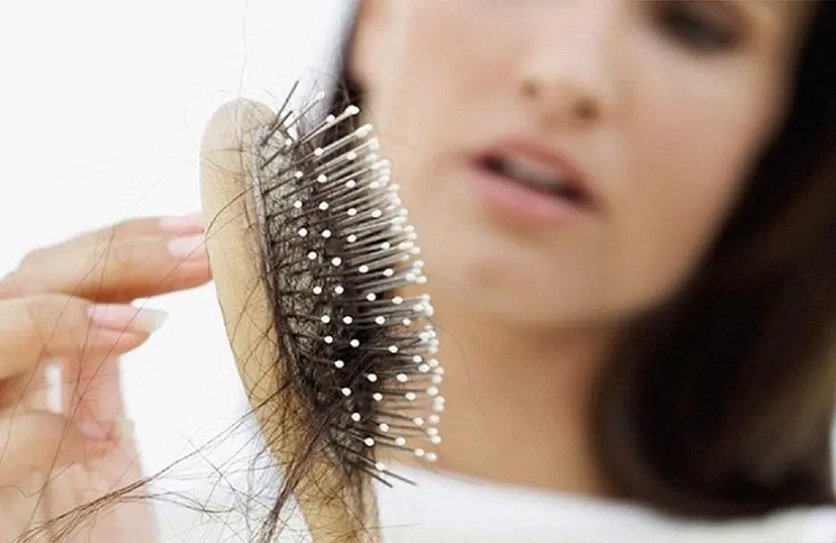Hair loss is a multifaceted issue that can significantly impact one’s self-esteem and quality of life. Many people facing hair loss seek quick fixes or rely on topical treatments, but the root cause of their problem may lie deeper than surface-level remedies can address. Nutritional deficiencies, often overlooked, can play a critical role in hair loss, masking the true underlying causes. Understanding how these deficiencies may be obscuring the real issues can be crucial in developing a comprehensive approach to hair health.
The Link Between Nutrition and Hair Health
Table of Contents
Hair loss is commonly associated with several factors, including genetics, hormonal changes, and stress. However, nutrition plays a vital role in maintaining the health of hair follicles and supporting overall hair growth. Hair, composed mainly of a protein called keratin, requires a steady supply of essential nutrients to grow and remain strong. Deficiencies in key vitamins and minerals can disrupt this process, leading to thinning hair and increased shedding.
Common Nutritional Deficiencies and Their Impact on Hair
- Iron Deficiency
Iron is crucial for producing hemoglobin, which carries oxygen to the hair follicles. A lack of iron can lead to anemia, which often results in hair shedding. Studies have shown that women with iron deficiency anemia are more prone to experiencing hair loss. However, the relationship between iron levels and hair loss is complex. While iron deficiency can contribute to hair thinning, it’s essential to ensure that the deficiency is addressed correctly, as excessive iron intake can also be harmful.
- Vitamin D Deficiency
Vitamin D is well-known for its role in bone health, but its importance extends to hair growth as well. Vitamin D receptors are present in hair follicles, and a deficiency can disrupt the hair growth cycle, leading to conditions like telogen effluvium, where hair prematurely enters the shedding phase. Low levels of vitamin D have been linked to autoimmune conditions such as alopecia areata, where the immune system attacks hair follicles.
- Biotin Deficiency
Biotin, or vitamin B7, is often touted as a miracle nutrient for hair growth. While biotin deficiency is relatively rare, it can lead to brittle hair and hair loss. Biotin helps convert food into energy and plays a role in the health of skin, hair, and nails. Although many people use biotin supplements in hopes of improving hair quality, it’s important to note that unless there is a documented deficiency, supplementation may not yield significant benefits.
- Zinc Deficiency
Zinc is another mineral that plays a critical role in maintaining healthy hair. It supports the function of hair follicle cells and contributes to the synthesis of proteins and nucleic acids. Zinc deficiency can lead to hair loss, particularly in the form of alopecia areata, where patches of hair fall out. Balancing zinc levels is crucial, as both deficiency and excess can negatively impact hair health.
- Protein Deficiency
Since hair is made primarily of protein, a deficiency in dietary protein can directly impact hair growth. Protein deficiency can lead to hair shedding and slower hair growth, as the body prioritizes vital functions over hair production. Incorporating a variety of protein sources in your diet, such as lean meats, dairy products, legumes, and nuts, is essential for maintaining healthy hair.
How Nutritional Deficiencies Obscure True Causes of Hair Loss

Nutritional deficiencies can create a smokescreen for underlying issues related to hair loss. For instance, while a deficiency in a specific nutrient like iron or vitamin D might contribute to hair thinning, the real cause of hair loss could be related to more complex factors like hormonal imbalances, autoimmune conditions, or chronic diseases.
- Masking Hormonal Imbalances
Hormonal changes, such as those related to thyroid disorders or androgens, are well-documented causes of hair loss. However, a nutritional deficiency might exacerbate the problem, making it appear as though the deficiency alone is responsible. For example, low levels of vitamin D can worsen the effects of thyroid imbalances, making it difficult to discern whether the hair loss is due to a thyroid issue, a vitamin deficiency, or both.
- Complicating Autoimmune Conditions
Autoimmune conditions like lupus or alopecia areata can cause significant hair loss. Nutritional deficiencies can further complicate these conditions by exacerbating symptoms or affecting the effectiveness of treatments. A person with alopecia areata may experience more severe hair loss if they also have low levels of vitamin D or zinc, which can affect immune function and inflammation.
- Overlooking Chronic Health Conditions
Chronic health conditions such as diabetes or gastrointestinal disorders can impact nutrient absorption and lead to deficiencies. In such cases, addressing the nutritional deficiencies might improve hair health temporarily, but the underlying chronic condition remains unresolved. For example, celiac disease can impair nutrient absorption, leading to deficiencies that contribute to hair loss. Treating the disease itself, along with managing nutrient levels, is crucial for overall hair health.
Addressing Nutritional Deficiencies and Their Implications
To effectively address hair loss, it’s important to take a holistic approach that considers both nutritional and non-nutritional factors.
- Consult a Healthcare Professional
A healthcare professional can conduct tests to determine whether you have any nutritional deficiencies and help identify potential underlying causes of hair loss. Blood tests can reveal levels of essential nutrients and identify any deficiencies that might be contributing to your symptoms.
- Adopt a Balanced Diet
A well-balanced diet that includes a variety of nutrient-rich foods is crucial for maintaining healthy hair. Focus on incorporating fruits, vegetables, lean proteins, whole grains, and healthy fats into your meals. Foods rich in iron (such as spinach and lean meats), vitamin D (like fatty fish and fortified dairy products), biotin (eggs and nuts), zinc (shellfish and legumes), and protein (chicken and legumes) can support hair health.
- Consider Supplementation Carefully
If deficiencies are identified, appropriate supplementation can help address the gaps. However, it’s important to use supplements under the guidance of a healthcare provider to avoid over-supplementation and potential side effects. Supplements should complement a balanced diet rather than replace it.
- Address Underlying Health Issues
If nutritional deficiencies are masking underlying health conditions, such as hormonal imbalances or autoimmune disorders, addressing these conditions is crucial. A comprehensive treatment plan that targets both the deficiencies and the root cause of the hair loss is essential for long-term success.
Conclusion
Nutritional deficiencies are a common yet often overlooked factor in hair loss. While addressing deficiencies can improve hair health and reduce shedding, it’s crucial to consider other potential causes and underlying conditions. A thorough evaluation by a healthcare professional, coupled with a balanced diet and appropriate treatment, can help uncover the true cause of hair loss and lead to more effective solutions. By addressing both nutritional and non-nutritional factors, individuals can achieve a more comprehensive and lasting approach to maintaining healthy hair.
